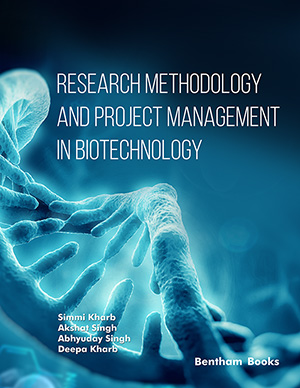
Abstract
Treatment of cancer is by no means universally successful and often manifests harmful side effects. The best way to improve the success rate and reduce the side effects would be to develop compounds that are able to kill cancer cells while leaving normal cells unaffected. In this respect, mitocans (an acronym from ‘mitochondria’ and ‘cancer’), a summary term we proposed for compounds that induce cell death by targeting mitochondria, show an encouraging trend. Here we provide an overview of mitocans specific for the mitochondrial electron transport chain. These mitocans are particularly interesting, because a frequent consequence of electron transport chain inhibition is the induction of superoxide formation resulting in the preferential killing of cancer cells, as these tend to be more sensitive than normal cells to sudden increases in oxidative stress. Furthermore, macromolecular complexes of the electron transport chain only rarely mutate in cancer, and represent useful targets for anti-cancer drug development when widely-applicable agents are sought.
Keywords: Cancer; mitochondria, electron transport chain, oxidative stress, cancer, anti-cancer drug development, tricarboxylic acid cycle (TCA), ROS formation, target specific regulatory proteins/pathways, chronic myeloid leukemia
Current Pharmaceutical Biotechnology
Title:Targeting the Mitochondrial Electron Transport Chain Complexes for the Induction of Apoptosis and Cancer Treatment
Volume: 14 Issue: 3
Author(s): Jakub Rohlena, Lan-feng Dong and Jiri Neuzil
Affiliation:
Keywords: Cancer; mitochondria, electron transport chain, oxidative stress, cancer, anti-cancer drug development, tricarboxylic acid cycle (TCA), ROS formation, target specific regulatory proteins/pathways, chronic myeloid leukemia
Abstract: Treatment of cancer is by no means universally successful and often manifests harmful side effects. The best way to improve the success rate and reduce the side effects would be to develop compounds that are able to kill cancer cells while leaving normal cells unaffected. In this respect, mitocans (an acronym from ‘mitochondria’ and ‘cancer’), a summary term we proposed for compounds that induce cell death by targeting mitochondria, show an encouraging trend. Here we provide an overview of mitocans specific for the mitochondrial electron transport chain. These mitocans are particularly interesting, because a frequent consequence of electron transport chain inhibition is the induction of superoxide formation resulting in the preferential killing of cancer cells, as these tend to be more sensitive than normal cells to sudden increases in oxidative stress. Furthermore, macromolecular complexes of the electron transport chain only rarely mutate in cancer, and represent useful targets for anti-cancer drug development when widely-applicable agents are sought.
Export Options
About this article
Cite this article as:
Rohlena Jakub, Dong Lan-feng and Neuzil Jiri, Targeting the Mitochondrial Electron Transport Chain Complexes for the Induction of Apoptosis and Cancer Treatment, Current Pharmaceutical Biotechnology 2013; 14 (3) . https://dx.doi.org/10.2174/1389201011314030011
| DOI https://dx.doi.org/10.2174/1389201011314030011 |
Print ISSN 1389-2010 |
| Publisher Name Bentham Science Publisher |
Online ISSN 1873-4316 |
Call for Papers in Thematic Issues
Artificial Intelligence in Bioinformatics
Bioinformatics is an interdisciplinary field that analyzes and explores biological data. This field combines biology and information system. Artificial Intelligence (AI) has attracted great attention as it tries to replicate human intelligence. It has become common technology for analyzing and solving complex data and problems and encompasses sub-fields of machine ...read more
Latest Advancements in Biotherapeutics.
The scope of this thematic issue is to comprehensively explore the rapidly evolving landscape of biotherapeutics, emphasizing breakthroughs in precision medicine. Encompassing diverse therapeutic modalities, the issue will delve into the latest developments in monoclonal antibodies, CRISPR/Cas gene editing, CAR-T cell therapies, and innovative drug delivery systems, such as nanoparticle-based ...read more
Machine Learning and Artificial Intelligence for Medical Data Analysis and Human Information Analysis in Healthcare
The intersection of machine learning (ML) and artificial intelligence (AI) with the pharmaceutical industry is revolutionizing traditional paradigms in drug discovery and development. These technologies have introduced innovative approaches to analyzing complex datasets and predicting chemical properties, leading to more efficient identification and optimization of drug candidates. By employing sophisticated ...read more
 56
56
- Author Guidelines
- Graphical Abstracts
- Fabricating and Stating False Information
- Research Misconduct
- Post Publication Discussions and Corrections
- Publishing Ethics and Rectitude
- Increase Visibility of Your Article
- Archiving Policies
- Peer Review Workflow
- Order Your Article Before Print
- Promote Your Article
- Manuscript Transfer Facility
- Editorial Policies
- Allegations from Whistleblowers
Related Articles
-
Anticarcinogenic Actions of Tributyrin, A Butyric Acid Prodrug
Current Drug Targets Clinical Applications of the Urokinase Receptor (uPAR) for Cancer Patients
Current Pharmaceutical Design In Vitro and In Vivo Sirolimus for Modulation of Allogeneic Hematopoietic Stem Cell Transplantation
Current Medicinal Chemistry - Immunology, Endocrine & Metabolic Agents Comparative Proteomics and Bioinformatics Analysis of Tissue from Non-Small Cell Lung Cancer Patients
Current Proteomics Applications of Nanocarbons in Bio-Medical Devices
Recent Innovations in Chemical Engineering α7 Nicotinic Acetylcholine Receptors: A Therapeutic Target in the Structure Era
Current Drug Targets Notch Signalling Pathways and Their Importance in the Treatment of Cancers
Current Drug Targets Targeting the RAS Signaling Pathway in Malignant Hematologic Diseases
Current Drug Targets Malignant Mesothelioma: Cell Survival Pathways and Radiation Therapy
Current Respiratory Medicine Reviews Antibody-Drug Conjugate Targets
Current Cancer Drug Targets New Developments in the Management of Pleural Effusions
Current Respiratory Medicine Reviews Epi-Drugs and Epi-miRs: Moving Beyond Current Cancer Therapies
Current Cancer Drug Targets Tumoral Drug Metabolism: Perspectives and Therapeutic Implications
Current Drug Metabolism Analytical Methods for Metallothionein Detection
Current Analytical Chemistry Dichotomous Life of DNA Binding High Mobility Group Box1 Protein in Human Health and Disease
Current Protein & Peptide Science Recent Advances in Antabuse (Disulfiram): The Importance of its Metal-binding Ability to its Anticancer Activity
Current Medicinal Chemistry State of Research Tracks and Property Protection of Photodynamic Sensitizers and Delivery Methodologies
Recent Patents on Chemical Engineering Pharmacological Characterization of Histone Deacetylase Inhibitor and Tumor Cell-Growth Inhibition Properties of New Benzofuranone Compounds
Current Cancer Drug Targets Novel Tri-substituted Thiazoles Bearing Piperazine Ring: Synthesis and Evaluation of their Anticancer Activity
Letters in Drug Design & Discovery Pharmacological Inhibition of Exosome Machinery: An Emerging Prospect in Cancer Therapeutics
Current Cancer Drug Targets


























